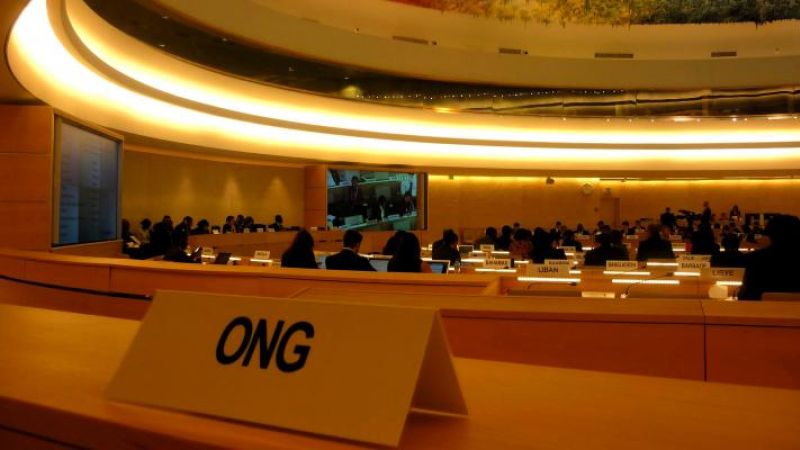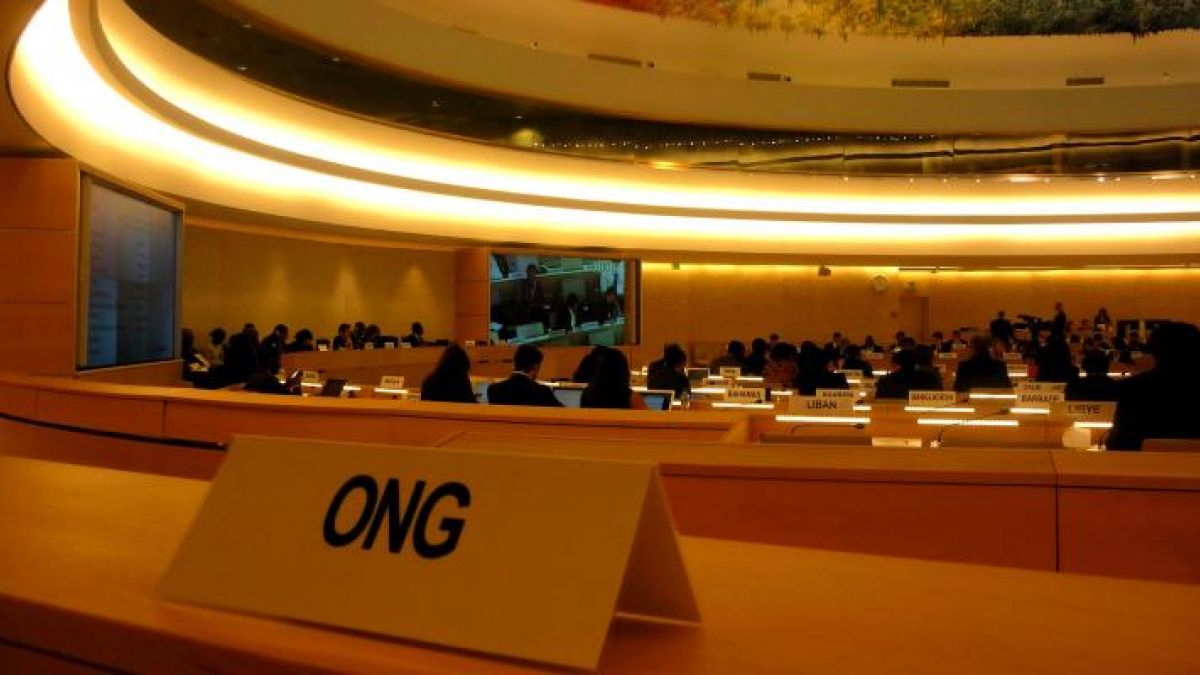What is and is not an NGO


Internet

Published at: 25/01/2024 09:00 PM
Around the world, there are groups and organizations that present themselves as independent and non-profit, in which the State does not participate and that seek to influence public life through the independent management of social issues, economic development or in relation to human rights . This is how the so-called Non-Governmental Organizations (NGOs) are defined. It is worth revisiting the lights and shadows of these institutions in order to characterize them and give a framework of understanding to understand them, what are their purposes, their structures and their limits.
What are they?These are private entities that synergize with commonly called “cooperation” projects and are financed by governments and corporations, even if their name tries to reflect something else. When we talk about cooperation, they refer to an interest in “ensuring public welfare”; this is how the NGO Oxfam defines it.
The current format with which they are known emerged in the early 1960s from diverse groups of experts and volunteers with social, economic, environmental, cultural and diverse concerns, especially in regions of the world with marginalized majorities. However, journalists and analysts such as Aram Aharonian, who have been keeping track of these types of organizations, argue that they are part of non-military counterinsurgency strategies.
Regarding them, Article 71 of the Charter of the United Nations states:
“The Economic and Social Council may make appropriate arrangements to hold consultations with non-governmental organizations that are concerned with matters within the Council's competence. Such arrangements may be made with international organizations and, if appropriate, with national organizations, after consultation with the respective Member of the United Nations.”
Unlike government institutions, they have relative autonomy and freedom because they can define their working methods and rhythms. Many of them respond more to interests, trends, fashions and myths than to the needs of the social groups that receive their support. In this way, they justify the use of funds and obtain immediate and spectacular results.
Some of its limitations:
Technical promotion projects (such as green energy or climate intelligent
agriculture). They are carried out with a
marketing approach, without really considering whether they correspond to the needs of the
groups or to their notions of sovereignty.
Welfare projects. Typical of some private
cooperation organizations that make donations and promote a
subsidized mentality among the recipients and that, on the other hand, tend to compete
unfairly with local production.
“Corporate development” projects. They return to the productivist logic of large cooperation apparatuses through the installation of companies that do not take into account, for example, the logic of the productive systems of the local peasantry.
They have great influence on the different instances of
government and have scaled up, together with transnational elites, to multi-stakeholder partnerships (
MSP), which are spaces for mediation and participation where they
represent the different sectors of society.
These are not just entities focused on “enriching democratic processes and meeting the needs of citizens” as pontificated by the United States Agency for International Development (USAID). Since its peak in the 1980s and 1990s, during the Ronald Reagan administration and the end of the cold war, its fields of intervention have diversified: humanitarian emergency, food, human rights and the environment. This allows them to embed themselves in the various facets of countries' domestic politics.
An arsenal of organizations has consistently received funding from the USAID Agency, the National Foundation for Democracy (NED) and its satellites, Freedom House and George Soros's Open Society Foundations, all directly linked to the US government apparatus.
Part of their narrative metabolism consists of affirming that they are not organizations that intend to “save” anyone. Oxfam affirms that quite the contrary, its “ development aid projects” are supposed to seek to eradicate the causes that cause thousands of people to be plunged into poverty. Hence, terms such as “empowerment”, “public advocacy” and “ civil society” are legal tender when it comes to strategy.
Although the discourse with which they are conceived is plural, on
the real level many of them do not maintain a neutral approach with respect to the economic
model they promote. Aharonian explains:
“(...) they are not part of the trade union resistance, nor of the neighborhood struggles, nor of the class peasant organizations, nor of the sectors of thought and the organic intelligentsia to a national, popular and anti-imperialist project . On the contrary, they concentrate their activity on local private projects, promoting the discourse of private enterprise in local communities through micro-enterprises”.
This is how USAID proposes its association with NGOs, within the neoliberal and globalizing model that the United States is trying to impose on the world. The problems they address, and that form part of the cooperation agendas, are always related to a certain unilateral conception of the desirable and inclusive socio-economic organization of the countries that receive it.
Many donors have policies that dictate the circumstances under which cooperation can take place. For example, four years after the earthquake in Haiti in 2010, a substantial proportion of U.S. development funds in the country were still channeled through American companies, rather than Haitian companies. Although the reason may have been local corruption, there was a scandal of “misplaced” funds surrounding the Clinton Foundation.
Nor is the model of civic participation based on NGOs neutral, nor are the governments that promote it the most. In 2001, Executive Order 13,224 (Patriot Act ratified in 2004) of the U.S. government established the prohibition of transactions with individuals and organizations that the Executive Branch, not the Judiciary, would consider associated with terrorism. This allowed the government to freeze the assets controlled or held by these entities and those who support them.
In contrast, USAID funded “support for democracy” with 248 million dollars in the second half of 2022 in countries of the Commonwealth of Independent States (CIS), made up of the former Soviet states Russia, Armenia, Azerbaijan, Belarus, Kazakhstan, Kyrgyzstan, Moldova, Tajikistan and Uzbekistan. The administrator of the aforementioned agency, Samantha Power, clarified that they invested only 243 million in all of 2021.
The United States has long struggled to expand its influence and soft power in the CIS, so USAID has significantly increased its investments in the region, especially in Armenia, Georgia and Moldova, peripheral states of the CIS, where the biggest beneficiaries of the new grants have been NGOs and the media.
Free?
Even though legislation in Europe and the United States is full of rules that claim to guarantee freedom of association, NGOs do not operate at their own discretion. In 2007, the Committee of Ministers of the Council of Europe issued Recommendation 14 to member States on the legal status of NGOs in Europe and established as a cause for the termination of their legal personality that “they have committed serious misconduct in the sense of participating voluntarily in activities that are incompatible with the objectives for which the NGO was founded (including being an essentially non-profit organization)” (Literal 89).
The international standards related to reporting and disclosure requirements for NGOs, issued by the Council of Europe in 2018, stipulate the duties of public officials to disclose to a supervisory authority their membership in certain types of them; they also require them to submit annual activity reports, in addition to financial statements.
Through the Patriot Act, a U.S. government official can impose fines and prison sentences of up to 15 years for anyone who provides material support or resources that are used in acts classified as terrorist. The penalty can be perpetual if the official considers that the act causes the death of a person.
The legal regulation of NGO activities in the Global North seeks to create records that require the declaration of their existence, their activities and their sources of funding, as well as the relationships they may maintain with other subjects, national or international. In addition, for Europe, the funding of these organizations is limited by laws “relating to the funding of elections and political parties”, as analyzed by a study on the legal status of NGOs.
Money Carousel
The so-called international cooperation assumes that the countries of the Global North have a mass of economic, financial, human, technical and military resources that can be transferred to the Global South, so that each country “develops capacities and adopts political actions to solve certain problems”. The altruistic and humanitarian façade of those countries hides the fact that these funds come from the cumulative profit that the countries of the North have achieved using the resources of the countries of the South .
This is demonstrated by a study led by Jason Hickel, a researcher at the Institute of Environmental Science and Technology of the Autonomous University of Barcelona (ICTA-UAB), in Spain, who has analyzed the environmental footprint to calculate the scale and value of resource grabbing in the South between 1990 and 2015.
There is no level playing field in the dark world. A study carried out by the Organization for Economic Cooperation and Development (OECD) revealed that 20% of NGOs concentrate 80-90% of all available resources. This leads to furious competition between them for donor funding.
In Venezuela, key aspects of how they influence national politics and the transparency of their actions have been revealed. Last Tuesday, January 31, Jorge Barragán, spokesperson for International Affairs for the Pencil Alliance party, denounced the fate of the $1 billion in alleged humanitarian aid revealed by the former Secretary of State of the United States, Mike Pompeo, in his latest book Never Give In:
“We reviewed USAID reports in which it is revealed that this cooperation agency makes it clear that, of 100% of the resources allocated for humanitarian aid, only 2% reached people who really needed it. In other words, only 2% of the 1 billion that Mike Pompeo said in the book were able to reach people. The other 98% is not auditable, it got lost along the way.”
The new advance of NGOs in Venezuela not only prioritizes the issue of human rights, but the spectrum has begun to be broadened to other areas such as environment, health, unions, gender, social assistance, LGBTIQ+ activism, among others. This forum has analyzed how they have tried to exert social pressure by turning into a “field of struggle” the socio-economic effects suffered by the working population as a result of the 502 unilateral coercive measures applied by the United States and the European Union against Venezuela in favor of an agenda that could turn to dismissal, or at least towards the creation of a mass critical to government management of the effects of the continuing war.
Behind the financial circuits established for the operation of NGOs, lies the vision of a South that needs to be “civilized”; this vision legitimizes intervention and interference.
It is already customary for many of these organizations to take part in global elite offensives against governments, organizations and political figures to try to ensure the unipolarity of the global order. Although this order presumes to be “rule-based”, the question remains as to who imposes them and how they enforce them.
COURTESY MISSION TRUTH